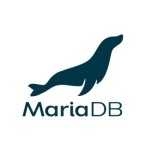
Senior IT Consultant/Program Mgmt at a consultancy with 501-1,000 employees
Performance Monitoring
What is most valuable?
Activity Monitor and Dynamic Management Views
How has it helped my organization?
After reviewing a client's Microsft SQL environment, I have been able to setup specifics alerts and jobs in SQL Server Management Studio (SSMS) to definitely show them where they are experiencing network latency, disk latency, memory pressure, etc., etc. I have done this type of performance review for over 20 clients in the last 5 years
What needs improvement?
When reviewing SQL processes it would be great if all of the local processes on the SQL server were marshaled to a remote SSMS client.
For how long have I used the solution?
I have been using Microsoft SQL Server since 6.0
Buyer's Guide
SQL Server
January 2026
Learn what your peers think about SQL Server. Get advice and tips from experienced pros sharing their opinions. Updated: January 2026.
881,707 professionals have used our research since 2012.
What was my experience with deployment of the solution?
WMI configuration
How was the initial setup?
Setting up Microsoft SQL server performance alerts and jobs on a single server or in a Cluster is very straightforward. I typically start off looking at the following:
- Batch Request/Sec
- Buffer cache hit ratio < 96%
- CPU Utilization > 80 % sustained
- Compilation/Sec
- Re-compilation/Sec
- Page Life Expectancy (PLE)
- User Connections
- Lock Waits / Sec: _Total
- Process Lock/Block By
My objectives are to provide a baseline to determine database growth pattern to ensure capacity planning, stability, bottlenecks, etc., etc.
Disclosure: My company does not have a business relationship with this vendor other than being a customer.
Developer at a retailer with 501-1,000 employees
SQL server is probably one of the best relational database servers.
What is most valuable?
Indexes, CTE, aggregate functions, partitions, memory optimized tables, service broker, CLR (C# assemblies),...
How has it helped my organization?
Can't imagine work without sql database. I have complete warehouse logic inside stored procedure and it works like a charm. It is installed in 20 companies with different warehouse types.
What needs improvement?
There is always some place for improvements. Statistics could be better (2 table statistic), or dynamic partition function, but that is probably true with every other product.
For how long have I used the solution?
I'm using this solution for 14 years.
What was my experience with deployment of the solution?
Deployment is pretty fluent.
What do I think about the stability of the solution?
No.
What do I think about the scalability of the solution?
Yes, mostly connected to bad code.
How are customer service and technical support?
Customer Service: Very good.Technical Support: Very good.
Which solution did I use previously and why did I switch?
Better user experience, very rich functionality and good reliability.
How was the initial setup?
Pretty straightforward.
What about the implementation team?
In house.
What's my experience with pricing, setup cost, and licensing?
Impossible to say. We have about hundred SQL servers.
Which other solutions did I evaluate?
mySql, firebird, access, and probably some more.
What other advice do I have?
With right use it could be part of almost any size and type of company.
Disclosure: My company does not have a business relationship with this vendor other than being a customer.
Buyer's Guide
SQL Server
January 2026
Learn what your peers think about SQL Server. Get advice and tips from experienced pros sharing their opinions. Updated: January 2026.
881,707 professionals have used our research since 2012.
Founder & Principal Architect at a tech services company with 1,001-5,000 employees
The best-ever SQL Server release - again
Microsoft’s flagship database engine, SQL Server, keeps getting better with every release. The SQL Server 2014 platform is the best-ever SQL Server release, and is packed full of features for organizations of all sizes.
Every organization has different requirements for data. Vendors might specify a particular product or platform for their software. In-house development staff might be geared towards one platform over others. Management might have their preferences. SQL Server might not be right for all shops out there, but I can state that it provides the same scalability, flexibility, and raw power of other DBMS platforms on the market, and does it with the easiest to manage suite of features that I encounter. I enjoy this product and the technical community that has grown up around this product so much that I have dedicated this portion of my career to the mastery of SQL Server as a database and architecture consultant. SQL Server 2014 continues the platform’s evolution towards the future, and I continue to stand by it.
The core database engine is one of the easiest portions of the product to administer via the included SQL Server Management Studio tool. Quite a few of the SQL Server installations that I encounter in the wild are installed by non-DBAs who just click through the installation wizard and stand up their required SQL Server instances. This simplicity is one of the product’s double-edged swords, because even though it is trivial to install, non-DBAs tend to skip the best practices around infrastructure architecture, installation, post-installation configuration, and ongoing management that helps the product to really shine.
The Enterprise edition contains an updated and enhanced feature called AlwaysOn, and it allows for the simple setup of highly available databases so that the data is available if a server fails. It also plays a double role in allowing for the setup of disaster recovery database servers so that if an entire datacenter fails, applications can continue to work with only a minor interruption in service (usually measured in seconds). Failover and failback are trivial, and a single interface is all that is required to manage the entire setup. I love this feature, and as my clients are starting to migrate to SQL Server 2012 and SQL Server 2014, see a tremendous increase in AlwaysOn adoption at the moment.
The other huge feature is with In-Memory OLTP, or codename Hekaton. It is in-memory extensions that allow an application to begin to use memory to dramatically improve the performance of an application with only minor modifications to the app code.
Other features included in the core engine and licenses editions of the production include:
- Backup encryption to make things more secure
- Resource governance to keep high trafficked databases from being ‘noisy neighbors’ to other application databases
- Data and backup encryption
- Finely tuned security levels, based on your organization’s requirements
- Integration Services - that includes a graphical means to transport, load, and transform data
- Analysis Services – build data warehouses and cubes to help you gain serious insight into your business trends
- PowerPivot for Excel to allow your end users to manage and transform the data that they require for decision support processes
- Reporting Services – grant your users the ability to run and schedule their own reports in a simple to use management interface
- Report Builder – advanced end users can construct their own reports, and even their own queries with the ‘model’ of the data that you present to them
SQL Server also now has the ability to move data into and out of the public cloud with ease through backing up to Microsoft’s Azure platform.
If you currently have SQL Servers in your organization, run – don’t walk – to SQL Server 2014. If you have some of the other database platforms on the market, consider migrating to SQL Server so you can reduce licensing costs, improve scalability while reducing complexity, and increase the number of database that a single DBA can individually manage.
Pros: Tremendous scalability. Easy to use and manage. Blur High Availability and Disaster Recovery with AlwaysOn Database Availability Groups. Business intelligence tools increases business insight into data.
Cons: The licensing has persisted the per-core model, and as a result the cost for the platform stays higher than expected. Adding software assurance, which I consider a must for virtualizing SQL Server, also drives up the cost.
Disclosure: My company does not have a business relationship with this vendor other than being a customer.
Founder & Principal Architect at a tech services company with 1,001-5,000 employees
Best DBMS platform for all of your business needs
Valuable Features:
- Ease of use of this product is much better than equivalent products
- New AlwaysOn availability group enhancements bundles more DR and HA features in one easy to use interface
- In-Memory OLTP, or project Hekaton, allows for utilizing memory to boost application performance with only minor application changes
- Power, scalability, flexibility, and bundled tooling means it will meet all of your organizational DBMS needs for all size workloads
- Support from MS and free knowledge and support from the MS community is terrific
- Virtualization friendly!
- Core features of the product include many features that require additional licenses with other platforms
- SImple to setup and keep running
Room for Improvement:
- Ease of installation means that anyone can install it, but many do not perform the steps required to properly maintain the data
- The increasing cost of the platform is slowing adoption by the SMB space
Other Advice:
I am so fond of this product that I have dedicated this portion of my career to focusing on mastering this platform as a consultant. I feel that this product is the best fit on the market for your database needs. The product is stellar, the amount of free knowledge on the Internet for this product is without parallel, and the community around SQL Server is so strong that I consider it a family.
Disclosure: My company does not have a business relationship with this vendor other than being a customer.
it_user4524Founder & Principal Architect at a tech services company with 1,001-5,000 employees
Consultant
Thanks! And the answer is nope - Report Builder 2012 is out there and
works great! It's available at
www.microsoft.com/en-us/download/details.aspx
Plus, Report Builder 2014 is out. Here's a great page on what's new in it.
msdn.microsoft.com/en-us/library/ee633667.aspx
Hope this helps!
David A. Klee
Sales Engineer at a tech consulting company with 11-50 employees
I have found SQL Server to be fast, secure and low cost
How has it helped my organization?
Security, lower cost, ease of maintenance and administration, performance. When all of these are considered, our business is able to run faster, more securely, with SQL as the back-end.
What needs improvement?
The Management Studio front end still needs work as does Indexing.
For how long have I used the solution?
14 years
What was my experience with deployment of the solution?
No, SQL installs well.
What do I think about the stability of the solution?
No, SQL was stable for our applications.
What do I think about the scalability of the solution?
No, scaling was easy with SQL. We never had an issue.
How are customer service and technical support?
Customer Service: Do not expect Microsoft to be in a hurry to get to you, but I have always found their support to be helpful.Technical Support: I would rate the support as average.
Which solution did I use previously and why did I switch?
We also used Oracle. We supported both with our application.
How was the initial setup?
SQL is very easy to setup.
What about the implementation team?
In-house.
Which other solutions did I evaluate?
We also used Oracle. We supported both with our application.
What other advice do I have?
Make sure you have your prerequisites installed and the proper amount of resources dedicated. You should not have a problem.
Disclosure: My company does not have a business relationship with this vendor other than being a customer.
Some may not agree with my findings on the security portion, but according to National Institute of Standards and Technology, SQL had the fewest number of reported vulnerabilities.
Network Engineer & Web Developer at a computer software company with 51-200 employees
Consequently, Microsoft SQL server is best choice.
SQL Server Microsoft
Microsoft itself is the name of trustworthiness, solid promise, reliability, steadfastness, loyalty and commitment. Among its ranges of products which are mostly open source and freely available for consumers, Microsoft SQL server is useful for the “Great Data Storage” tool. The latest version of MS SQL server is 2012 which incorporates many enhanced features but previous versions like 2003 and 2008 also meet the needs to store data and analytics of data during structuring query.
Microsoft SQL server 2012 emerged in three different versions Standard, Enterprise and Business edition. The basic standard version can be used by smaller companies' databases and include many vivacious features to manage the data integration. Some features are not available but still it meet the needs of consumers and data handlers. Other two editions have more features like high end data integration, large data analysis, query optimization and other data encapsulation.
It can also integrate to Apache Hadoop e.g. running on different remote machines, capturing queries and send them to SQL server for further investigation. It can manage both relational and non relational data through its built in data-connectors. Database creation is trouble-free along with transportation of database from one platform to another much more uncomplicated.
The best feature in my point of view in its Enterprise and business intelligence edition builds on Power view, a web service BI toolkit that can be attached to the share point. So one can pull the data from any other source from the network and throw in Power View to view them (it mainly includes reports).
Disadvantage
As 2012 edition has a data-connector to have a connection with other data centers but it is still available for the windows environment. It can only be enforced in that hardware configuration which suits windows environment.
Disclosure: My company does not have a business relationship with this vendor other than being a customer.
CEO at a tech company with 51-200 employees
SQL Server offers tight integration at low pricing
Valuable Features:
• SQL Server provide end users and database programmers with a broad spectrum of services such as Analysis and Reporting services, Data Engine, Integration Services thus making database development and management easier and reliable.
• SQL Server offers a platform on which data in all levels- structured, semi-structured, and unstructured data can be managed, integrated and analyzed thus enabling an organization to realize its mission-critical information.
• Latest versions of SQL Server provide a handy development studio that not only make the creation of database objects easy but also offer useful tools such Object Explorer to allow quick processes.
Room for Improvement:
• SQL Server work best with Windows Operating System and it is not compatible with some other systems hence limiting its platform friendliness.
• Advance versions with higher functionality such as Work Group Edition have high installation requirement such as multi-processor computers, larger primary memory and are not open source.
Other Advice:
• Database developers who want to have a clear logical and physical understanding of database systems will no doubt benefit much from using SQL Server. I personally marvel at the extensible support provided by the management studio especially on disk and file management as I enjoy using SQL Server 2008. SQL Server is friendly to both beginners and experts and its installation process can be customized to suite different features.
Disclosure: My company does not have a business relationship with this vendor other than being a customer.
Good Article. Though i would like to add some points.
1) Microsoft SQL Server is easy to use and offers more features, like full support for triggers.
2) Closely integrated with Microsoft products like .NET Framework.
3) Various features for data restoration and recovery.
4) Microsoft SQL Server only runs on Windows-based servers.
5) Costly license fees.
Network Manager at a manufacturing company with 501-1,000 employees
Will be my first choice for a DBMS again in the future.
Valuable Features:
A great database management system for all size companies. SQL server is more user friendly than competitors. Provides easy installation. If you need support or research for the product, it is easy to find help online. There are 3 editions available which will meet any companies needs. Latest version is cloud ready. Offers power and flexibility.
Room for Improvement:
For each additional core feature you want to add to your DBMS edition, it is more money. This is not a FREE program as most other DBMS are. So basically, the more you want, the more you pay.
Other Advice:
A great DBMS for organizations of all sizes. Will be my first choice for a DBMS again in the future. The installation process was simple. You will pay for this SQL Server, but don't be afraid to try the free programs also.
Disclosure: My company does not have a business relationship with this vendor other than being a customer.
Yes agree with the author that the system is user friendly and installation process is also simple and hassle free. SQL Server is a relational DBMS and supports various features like triggers and many more. Though the features comes with the price which cannot be affordable for some organizations.
Buyer's Guide
Download our free SQL Server Report and get advice and tips from experienced pros
sharing their opinions.
Updated: January 2026
Popular Comparisons
Teradata
MySQL
Oracle Database
SAP HANA
MariaDB
IBM Db2 Database
CockroachDB
Amazon Aurora
SAP IQ
Oracle Database In-Memory
Citus Data
YugabyteDB
LocalDB
IBM Informix
Actian Ingres
Buyer's Guide
Download our free SQL Server Report and get advice and tips from experienced pros
sharing their opinions.
Quick Links
Learn More: Questions:
- Microsoft sql2017 VS SAP Hana
- SQL Server 2005 vs. InfoBright - what are the pros and cons of these solutions?
- SQL Server 2012 - can I make OLTP transactions from my ERP run in memory?
- How does NuoDB compare to MySQL and SQL Server?
- What are the main architectural differences between Microsoft SQL Server and Oracle Multitenant?
- Would you say the price of SQL Server is high compared to that of similar products?
- Has using SQL Server helped your organization in any way?
- Which authentication mode is best for SQL Server?
- Which solution do you prefer: Microsoft SQL Server's enterprise edition or Oracle Database's enterprise edition?
- Which is better: SQL Server or SAP HANA?














How do you backup SQL server databases?